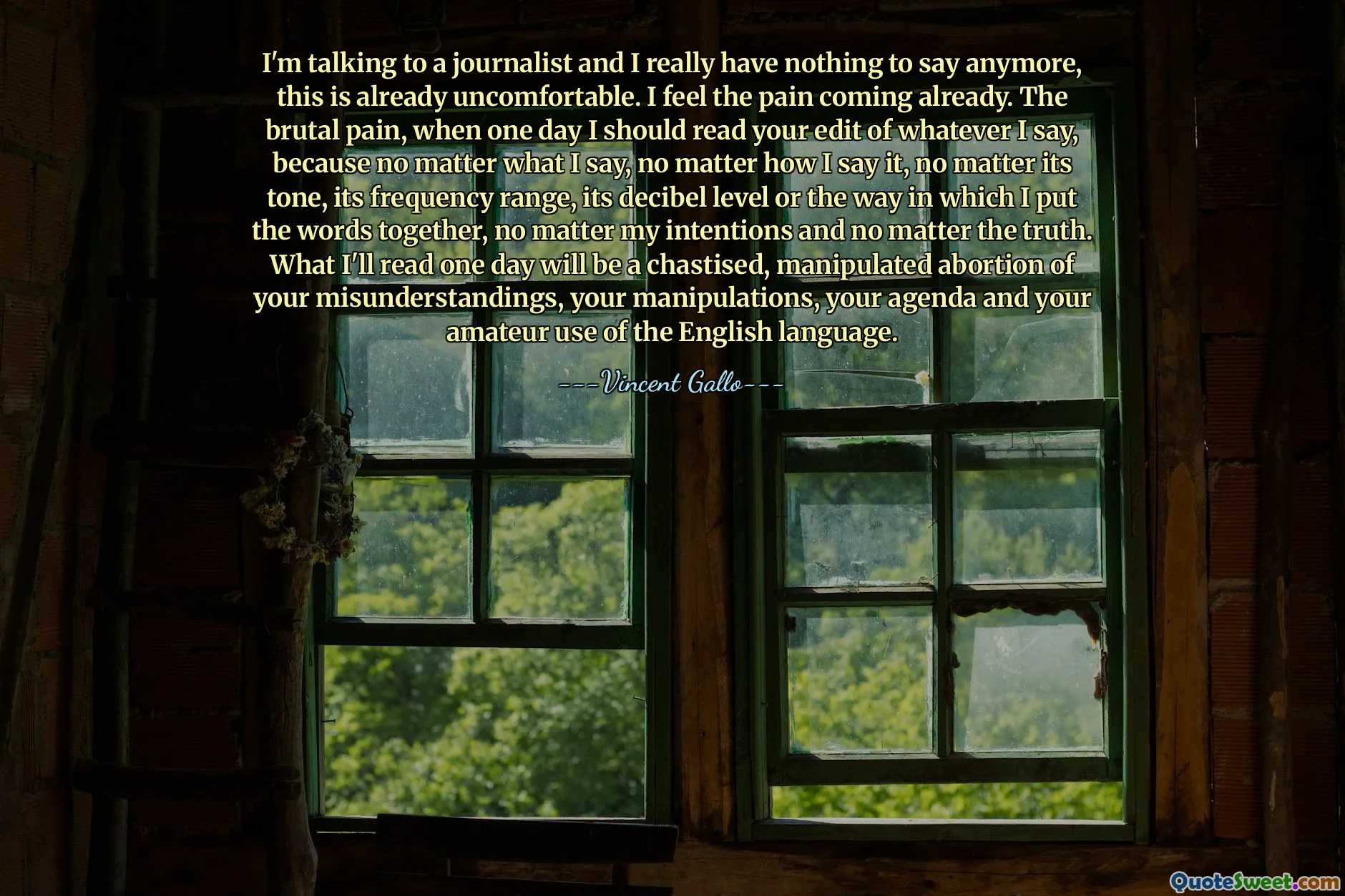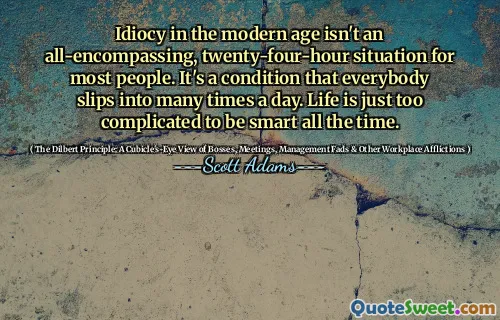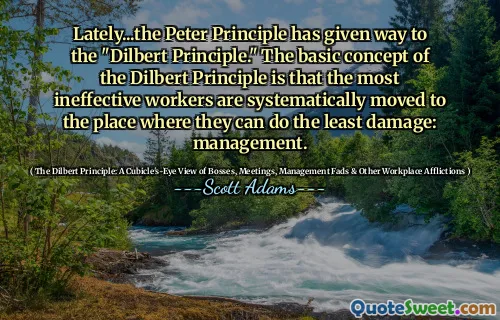
I'm talking to a journalist and I really have nothing to say anymore, this is already uncomfortable. I feel the pain coming already. The brutal pain, when one day I should read your edit of whatever I say, because no matter what I say, no matter how I say it, no matter its tone, its frequency range, its decibel level or the way in which I put the words together, no matter my intentions and no matter the truth. What I'll read one day will be a chastised, manipulated abortion of your misunderstandings, your manipulations, your agenda and your amateur use of the English language.
This quote powerfully encapsulates a profound frustration and disillusionment with the journalistic process, particularly when it comes to how an individual's words and intentions can be twisted through editorial manipulation. The speaker's dilemma conveys a sense of helplessness and inevitability, foreseeing a future where their authentic voice will be distorted regardless of their efforts to communicate honestly. It stresses the inherent tension between the speaker—who seeks to express truth or personal perspective—and the journalist, whose alterations introduce subjective biases, misinterpretations, or even agendas that can fundamentally change the message.
The raw emotional intensity conveyed by terms like "brutal pain" and "chastised, manipulated abortion" reveals how deeply personal and damaging this distortion feels to the speaker. It also brings to the fore broader issues about the ethics of media practice: the responsibility of journalists to preserve the integrity of others' words and the impact when that responsibility is not honored. Moreover, the speaker's mention of the journalist's "amateur use of the English language" implicates a rejection not just of misinterpretation but also of poor craft and carelessness, compounding the sense of betrayal.
The frustration is further emphasized by the perceived futility expressed—"no matter what I say... no matter my intentions and no matter the truth"—suggesting that the truth itself can be overridden by media distortion. This quote resonates in any context where communication is mediated and prone to manipulation, whether in public discourse, politics, or interpersonal relationships. Importantly, it invites reflection on how essential trust and respect are in communication, highlighting the pain caused when these bonds break down. Ultimately, this quote is a lament over a lost or corrupted voice, a powerful cry against being silenced through distortion.











